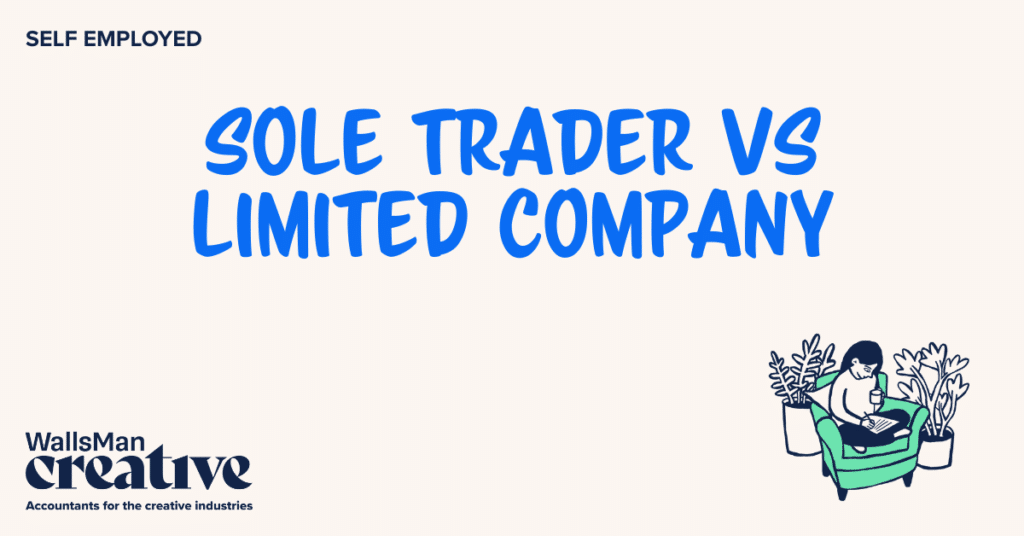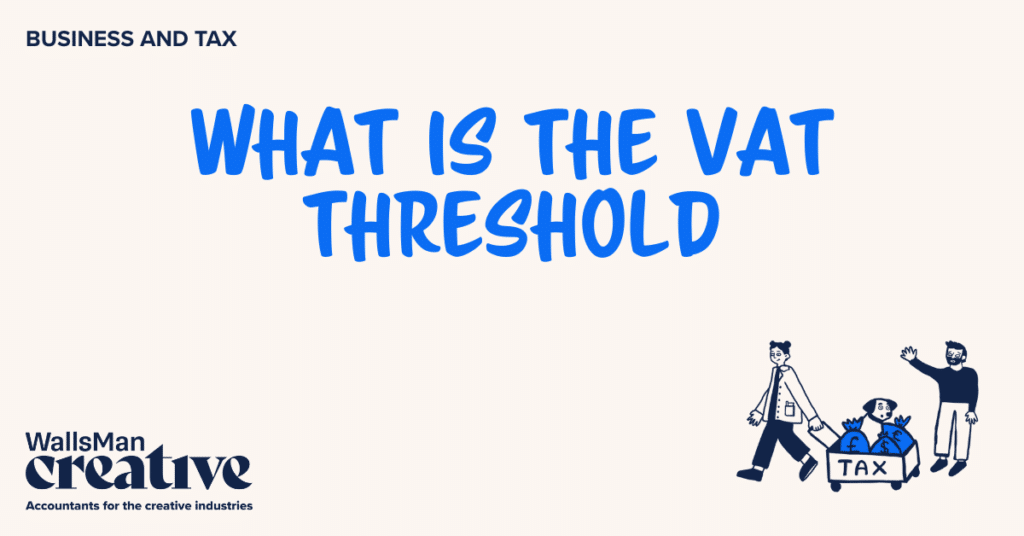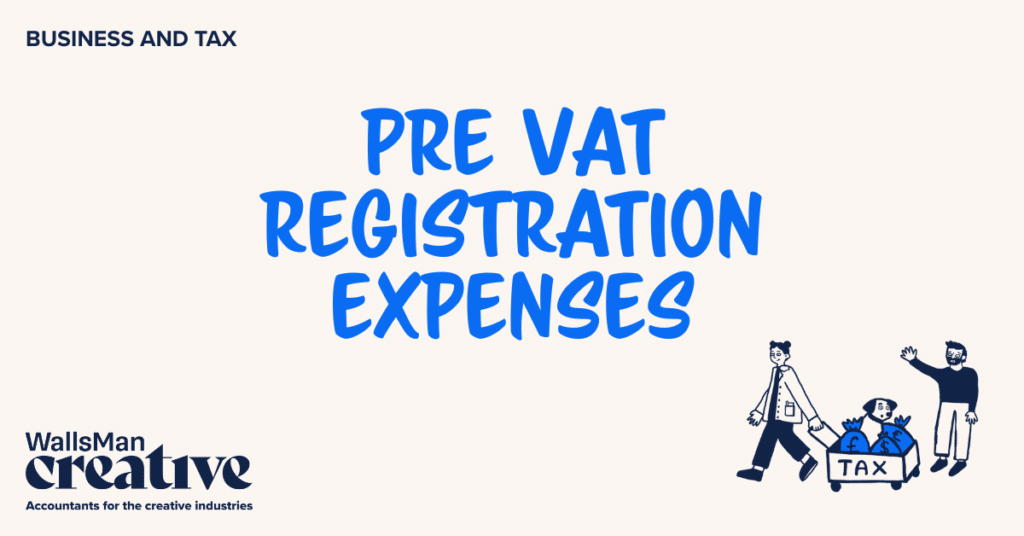Key Takeaways
- The key difference between a sole trader and a limited company is tax, liability, and admin.
- Sole traders are simple and low cost to run, but you are personally liable for business debts and pay income tax plus National Insurance on all profits.
- Limited companies offer limited liability, meaning your personal assets are usually protected if the business owes money.
- Limited companies can be more tax efficient once profits reach around £40,000–£50,000, using a mix of salary and dividends.
- Admin and costs are higher for limited companies.
If you’re starting a small business, one of your first choices is whether to operate as a sole trader vs limited company.
Table of contents
- 1. Difference between a sole trader and a limited company (Ltd.)
- 2. Sole trader vs limited company comparison
- 3. Tax differences that actually matter between a sole trader or a limited company
- 4. Costs and admin you need to know
- 5. How clients see you when you run your business
- 6. Changing from sole trader to a limited company
- 7. Find out which company structure is good for you with WallsMan Creative
1. Difference between a sole trader and a limited company (Ltd.)
The main difference between a sole trader and a limited company is how you pay tax, how much admin is involved, and how much risk you personally take on.
What is a sole trader?
A sole trader is the simplest way to run your business.
You’re classed as self-employed, and there’s no legal separation between you and your business. You keep all the profits, but you’re also personally responsible for any debts.
✅ Advantages of a sole trader
- Quick and free to set up: just register online with HMRC
- Complete control over decisions and profits
- Fewer reporting requirements compared to a limited company
- Privacy: your business details don’t appear on the public record
⛔ Disadvantages of a sole trader
- You may pay more income tax once your profits rise
- Sole traders cannot access the same tax reliefs available to limited companies
- Unlimited liability: your personal assets (like your home or car) could be at risk if the business owes debt
- Some larger clients prefer dealing with limited companies, which can limit opportunities
What is a limited company?
A limited company is a separate legal entity from the people who run it.
This means your liability is limited: if the company owes money, your personal assets are generally protected. Limited companies (Ltd.) also come with more admin and responsibilities, but they can be more tax efficient as your income grows.
✅ Advantages of an Ltd.
- Liability is limited: your personal assets are separate from the company’s debts
- Can be more tax efficient: directors can take a small salary and pay themselves through dividends
- Easier to raise investment or bring in other shareholders
- Often seen as more professional and credible by clients and suppliers
⛔ Disadvantages of an Ltd.
- More admin: annual accounts, statutory filings, and corporation tax returns
- Costs are higher: most small businesses need an accountant to stay compliant
- Less privacy: company details are published on the Companies House register
- Directors have legal responsibilities that can’t be ignored
2. Sole trader vs limited company comparison
| Aspect | Sole trader | Limited company |
|---|---|---|
| Legal status | Not separate from you as an individual. You are personally responsible for the business. | A separate legal entity with limited liability. The company is responsible for its own debts. |
| Tax | You pay income tax and National Insurance on your profits. | The company pays Corporation Tax. You take salary plus dividends. |
| Admin | Simple setup. You keep basic records and submit Self Assessment tax return. | More complex. You must file annual accounts, a Corporation Tax return, and statutory updates with Companies House. |
| Costs | Low running costs and minimal ongoing expenses. | Higher costs, including accountant fees and compliance costs. |
| Credibility | Feels more personal and flexible, suited to freelancers and small operators. | Seen more professional and can help attract larger clients. |
| Creative Tip From April 6, 2026, MTD for Income Tax Self Assessment (MTD ITSA) becomes mandatory for sole traders and landlords with income over £50,000, expanding to those with lower income thresholds over time (until April 2028). Sole traders must keep digital records and submit quarterly updates to HMRC through MTD-compliant software, rather than only an annual self-assessment. |
3. Tax differences that actually matter between a sole trader or a limited company
If you compare a sole trader vs limited company, the biggest factor is often tax. The way you pay tax, how much you pay, and what reliefs you can claim are very different depending on the business structure.
Sole traders pay income tax
- If you’re a sole trader, you report profits through a self assessment tax return.
- Sole traders pay income tax on everything they earn, plus National Insurance contributions.
- The more profit you make, the higher the tax rate: this can push you into higher income tax bands quickly.
Limited companies pay corporation tax
- A limited company is a separate legal entity, so the company pays corporation tax on profits.
- As a company director, you can take a small salary (taxed through PAYE) and then pay yourself dividends.
- Dividends are taxed at lower rates than income tax, which creates a tax saving once profits reach a certain level.
Tax reliefs and allowances
- Sole traders may deduct business expenses, but cannot access the wider tax reliefs available to companies.
- Limited companies may claim tax reliefs, exemptions, and allowances that reduce the overall tax bill.
- Companies can also retain profits in the business, delaying personal tax until money is withdrawn.
When does a limited company become more tax efficient?
- If your profits are modest, staying as a sole trader may be simpler and cheaper.
- Once profits grow, a limited company may deliver better tax savings.
- The tipping point where a limited company becomes more tax efficient than a sole trader is often when profits exceed £40,000 to £50,000, especially once income moves into the higher tax band (above £50,270).
The tax advantages of a limited company can be complex and depend on individual circumstances, so it’s worth seeking professional advice before deciding. Choosing the right structure is only part of the picture – good bookkeeping for creatives is what keeps everything compliant long term.
That’s where we come in: WallsMan Creative are working with the creative industries, so we know all about the potential advantages you might claim.
If you need advice, or aren’t sure whether to choose sole trader vs limited company, give us a call!
4. Costs and admin you need to know
After you’ve decided to start your business, the next step is choosing between a sole trader vs limited company. The difference isn’t only between tax, but also about how much admin you can handle and what it costs to stay compliant.
Admin for sole traders
- Register as a sole trader with HMRC
- Keep records of income and expenses
- File a self assessment tax return each year
- Pay income tax and National Insurance on profits
- Relatively light admin – many sole traders don’t need a full-time accountant
Admin for limited companies
- Register your company with Companies House
- File annual accounts and a company tax return
- Keep statutory records of directors and shareholders
- Report changes to Companies House (for example, if you change your company name)
- Directors must meet legal responsibilities and deadlines
- Most small businesses hire an accountant to manage this
Costs to consider
| Aspect | Sole trader | Limited company |
|---|---|---|
| Setup costs | Little to no setup cost. | Incorporation fee payable to Companies House. |
| Accountant fees | Optional. Often limited to help with an annual tax return. | Ongoing accountant fees are common due to reporting and HMRC compliance. |
| Insurance | May need insurance depending on the type of business. | Insurance is usually required and can be more extensive. |
| Admin costs | Very low, with minimal paperwork. | Higher admin costs due to statutory filings and compliance. |
| Hidden costs | Time spent on admin is generally low. | Time is a major hidden cost, with directors spending more hours on compliance and paperwork. |
5. How clients see you when you run your business
It’s not just about tax or admin: the way you set up your business also affects how clients and suppliers see you. The difference between a sole trader and a limited company can shape your reputation.
| Aspect | Sole trader | Limited company |
|---|---|---|
| Overall perception | Seen as flexible, approachable, and personal. | Seen as professional, stable, and established. |
| Best suited for | Freelancers, consultants, and small businesses just starting up. | Businesses aiming to work with larger or corporate clients. |
| Client confidence | Some larger companies may see sole traders as less formal or higher risk. | Separate legal entity can reassure clients about risk and liability. |
| Contracts | Contracts are simpler and less formal. | Preferred for formal contracts and insurance requirements. |
| Brand credibility | Credibility can be harder to build as you grow. | Having “Ltd” in the name can increase credibility. |
Which option is best for credibility?
If your business relies on winning bigger contracts or working with corporates, a limited company may open more doors. But if you’re testing an idea, freelancing, or running a small business where relationships matter more than appearances, being a sole trader is often enough.
6. Changing from sole trader to a limited company
Many business owners start as sole traders and later switch to a limited company once profits rise or liability becomes a concern. The process involves registering your company with Companies House, moving your accounts across, and updating HMRC.
We’ve already written a full guide on how to change from being a sole trader to a limited company: covering everything from tax year timing to paperwork and accountant support. You can read that in detail here.
| Creative Tip Two terms – sole trader vs self-employed often get mixed up. But they’re not quite the same. Self-employed is the broad category: it simply means you work for yourself rather than being on someone else’s payroll. Sole trader is one specific way of being self-employed. As a sole trader, you run your business as an individual and are personally responsible for its debts, profits and taxes. |
7. Find out which company structure is good for you with WallsMan Creative
Starting out as a sole trader keeps things simple and flexible. But if your profits are climbing – or you want the added protection and credibility that a company structure brings – moving to a limited company can make sense.
At WallsMan Creative, we help freelancers, small businesses and creatives across the UK figure out what works best for them. We know the ins and outs of your work, since we’re only working with creatives just like you! We know about things you might not even consider: subsidies or tax credits and reliefs you didn’t even hear of.
If you’re deciding if it’s time to make the switch, looking for tax savings, or just want a clear explanation of your options, we’ll cut through the jargon and give you advice that fits your goals.





